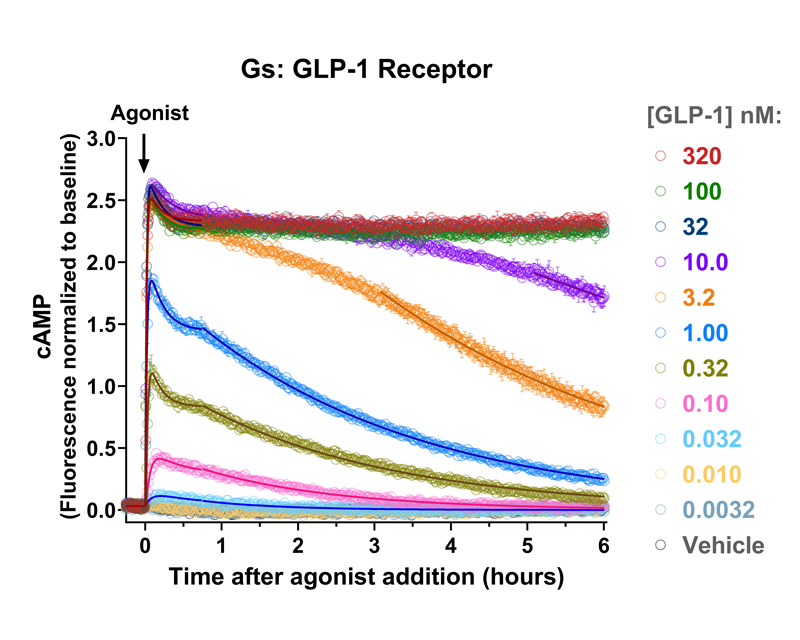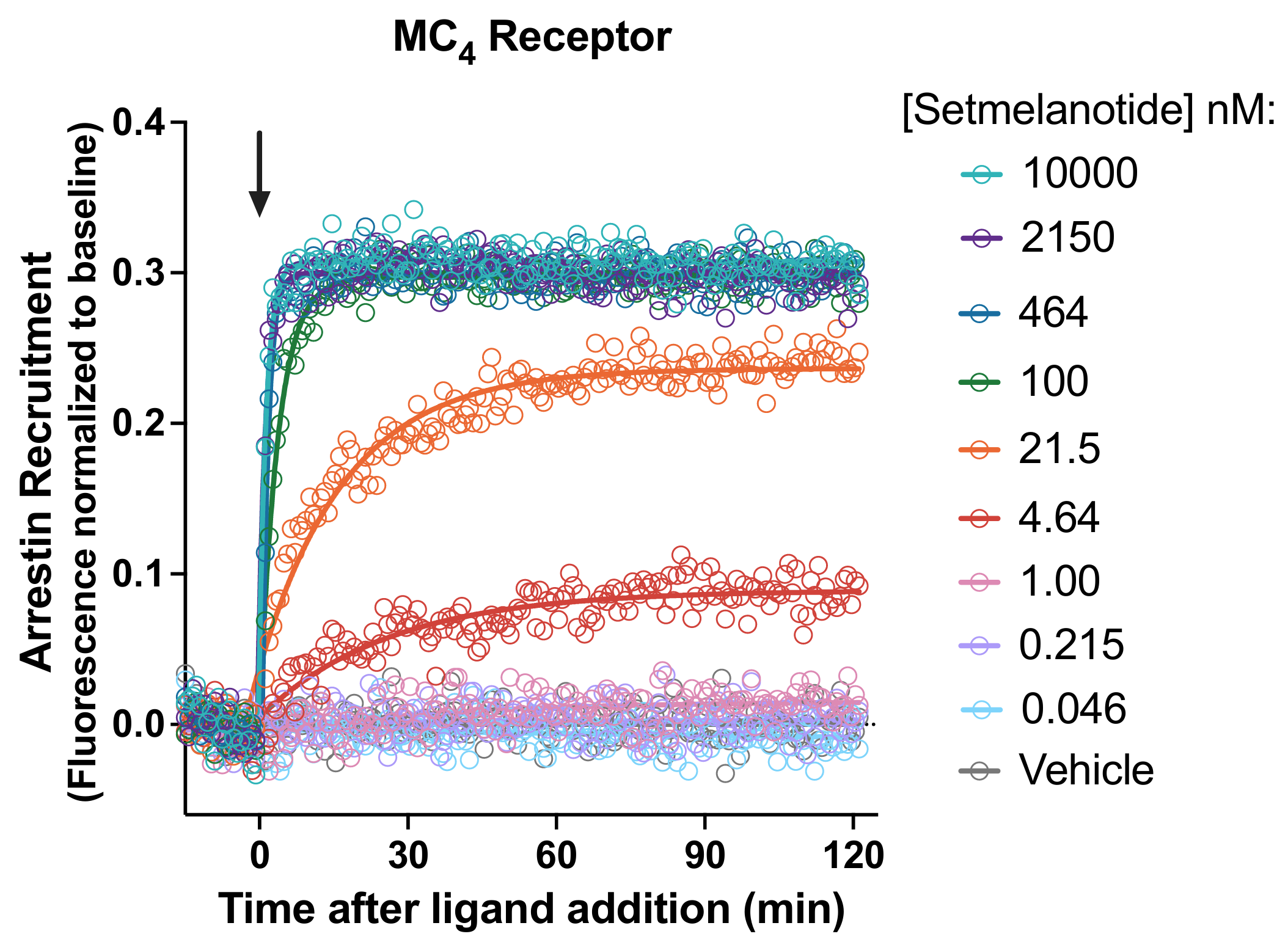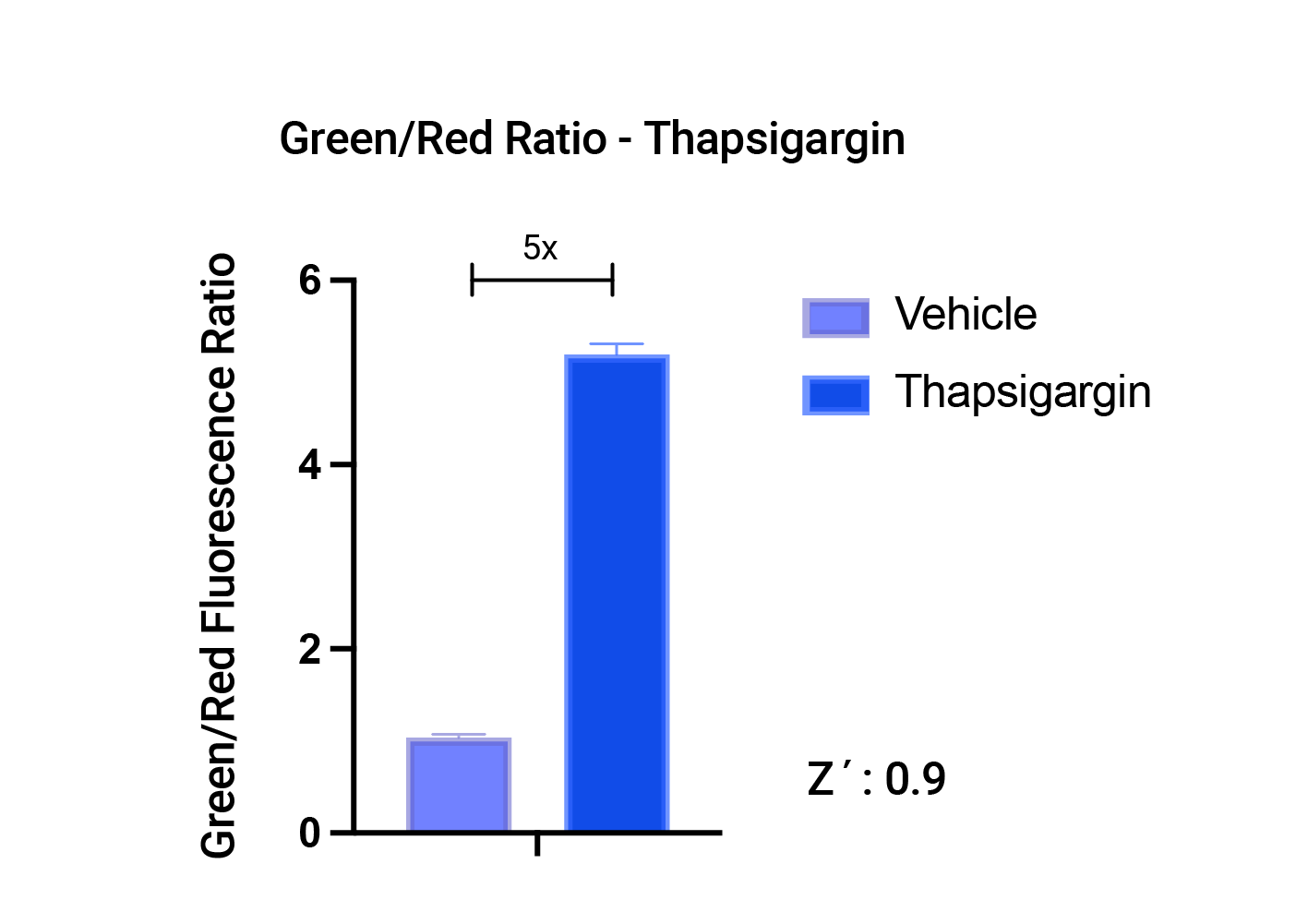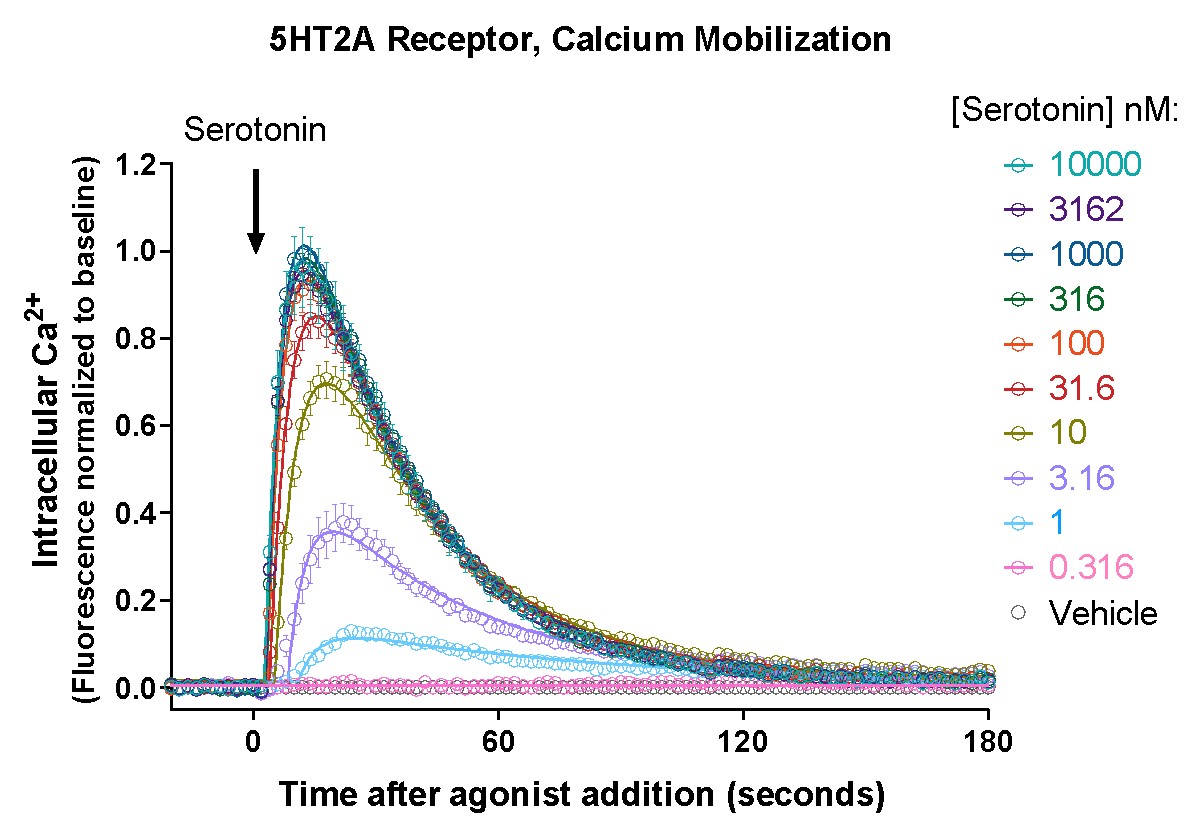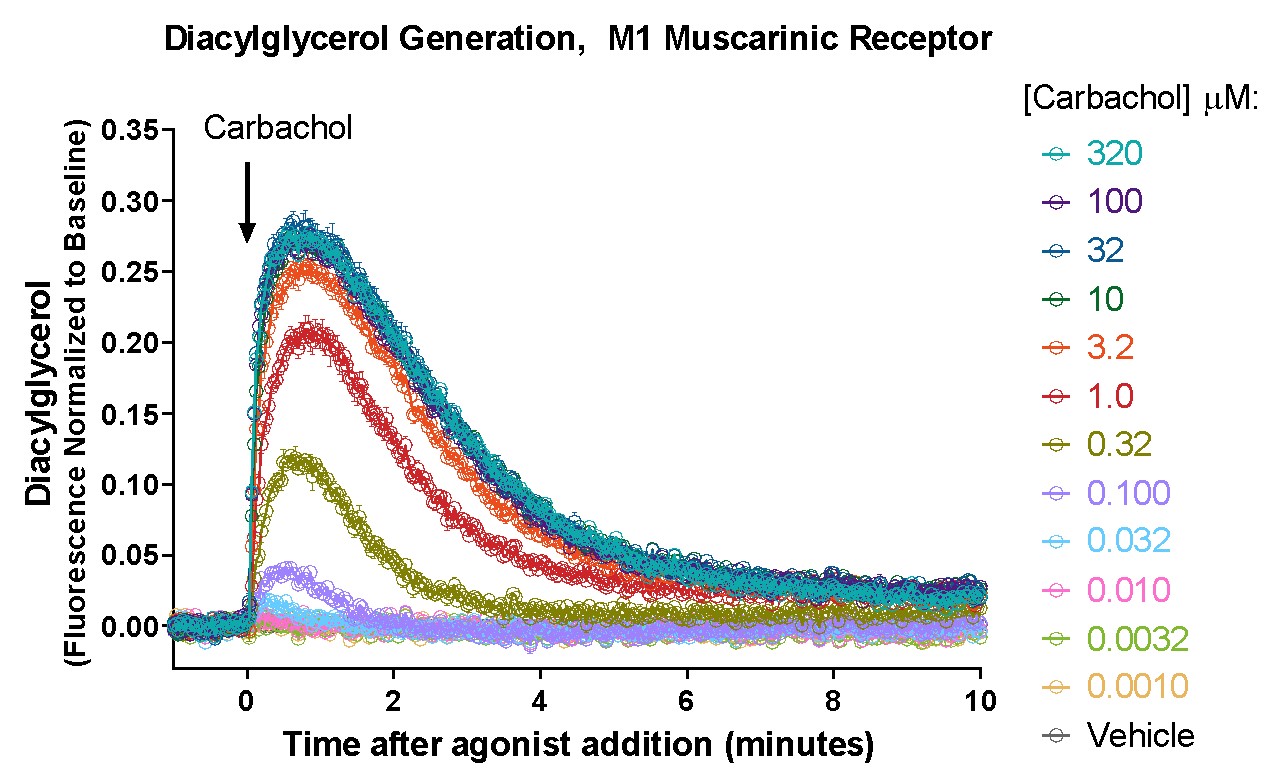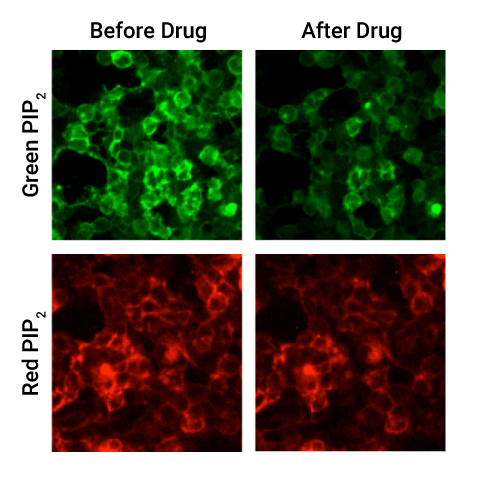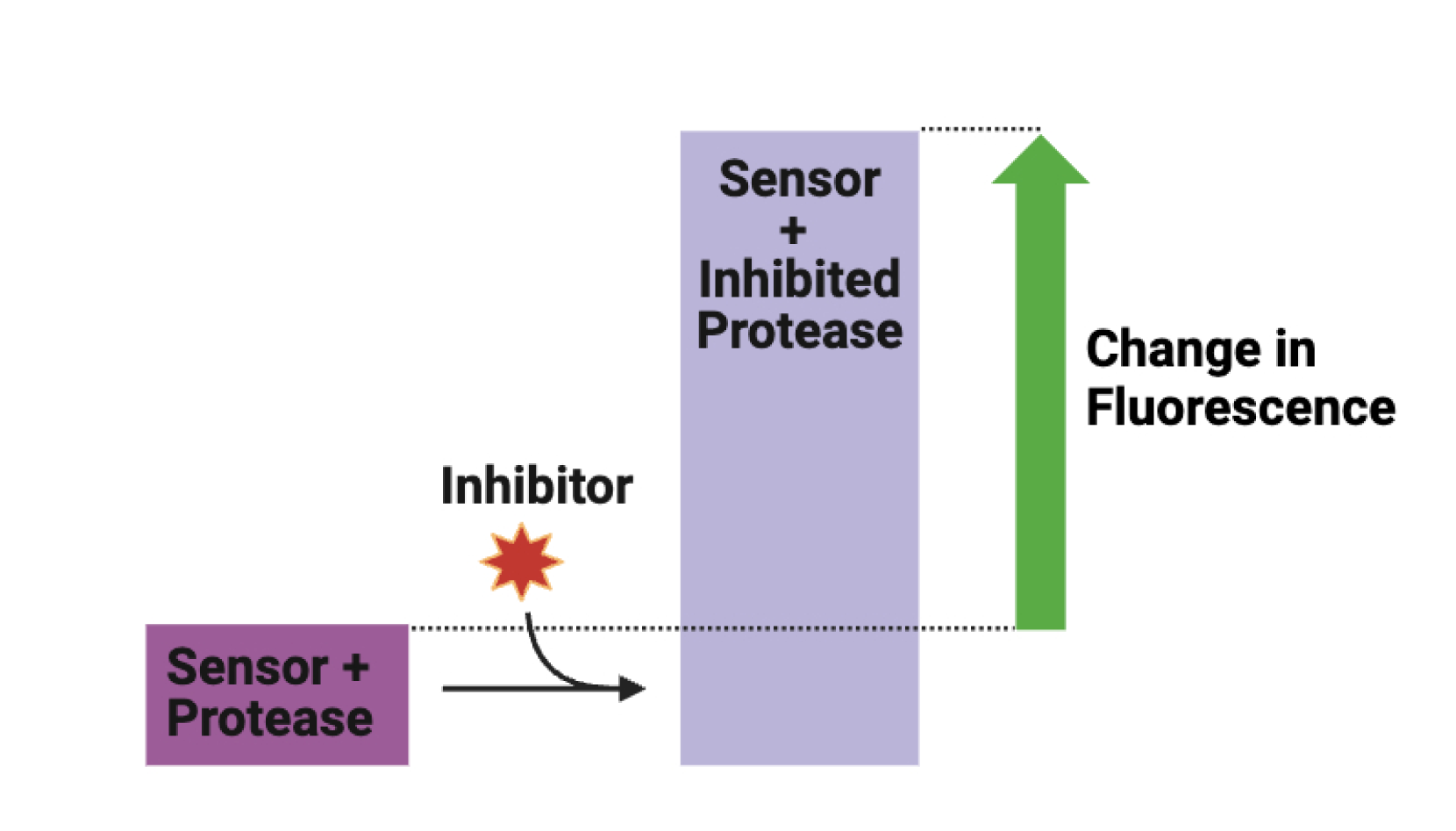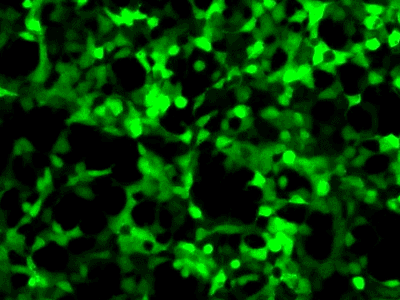Fluorescent Biosensors
Montana Molecular develops genetically encoded, fluorescence-based biosensors for use in live-cell assays. These innovative tools are packaged in a BacMam viral vector, providing consistent, robust, and titratable expression across standard cell lines, primary cultures, and iPSCs.
cADDis cAMP
cADDis is a genetically-encoded fluorescent cyclic AMP assay that detects changes in cAMP in real time. Detect Gs or Gi signaling kinetics in living cells on plate readers and imaging systems with high signal-to-noise. Explore compartmentalized signaling with subcelluar domain-targeted cAMP sensors.
Borealis Arrestin
Borealis is your best-in-class fluorescent biosensor for arrestin recruitment. Assess arrestin recruitment using native, unmodified GPCRs, measure kinetic cellular responses, and reliably detect agonist bias in living cells. Monitor arrestin and G-limb signaling using the same modality, either simultaneously or in parallel.
ER Stress
Bright fluorescent assays to detect activation of ER Stress through the IRE1-XBP1 branch of the Unfolded Protein Response. Measure biologically relevant stress responses upstream of autophagy and cell death pathways. Detect reversal of the stress response and screen for compounds that alleviate stress. Run neurotoxicity or cardiotoxicity assays in iPSC-derived neurons and cardiomyocytes. Pair with signaling assays to understand disrupted signaling kinetics in stressed cells.
GECO Calcium
Real time kinetic Ca2+ sensor for fluorescent plate readers and imaging systems. The GECO assays (R-GECO, G-GECO) are fluorescent calcium assays for real time kinetic readouts. This genetically encoded fluorescent sensor is available in both red or green versions, can be expressed in a variety of cell types for plate reader or imaging applications. Originally developed by Robert Campbell’s lab at University of Alberta, Montana Molecular packages these calcium sensors in BacMam viral vectors for robust expression in your favorite cells.
DAG Signaling
Bright green and red fluorescent assays to detect diacylglycerol signaling in living cells. Screen Gq-coupled GPCRs and characterize the signaling response with kinetic data on plate readers or imaging systems.
PIP2 Assay
Detect PIP2 signaling in real time, in living cells. Single channel Red and Green fluorescent assays are available. Combine with other biosensors in the same cells to simultaneously detect multiple signaling pathways.
3CLglow 3CL Protease Biosensors
Robust, biologically meaningful tools to evaluate therapeutic drugs that target SARS-CoV-2 replication. Screen for 3CLprotease inhibitors on plate readers with BSL-1 reagents. Evaluate the impacts of mutations in 3CLpro on compound efficacy. Use 3CLglowLive to rapidly identify viral replication or test SARS-CoV-2 antibody effectiveness.
GENIe cGMP Assay
Measure cGMP signaling in real time to study cGMP production or PDE inhibition, screen for PDE inhibitors, or examine other aspects of PDE biology. Use alongside cADDis cAMP assays to investigate PDE selectivity. Monitor fluorescence changes on automated plate readers or imaging systems.

